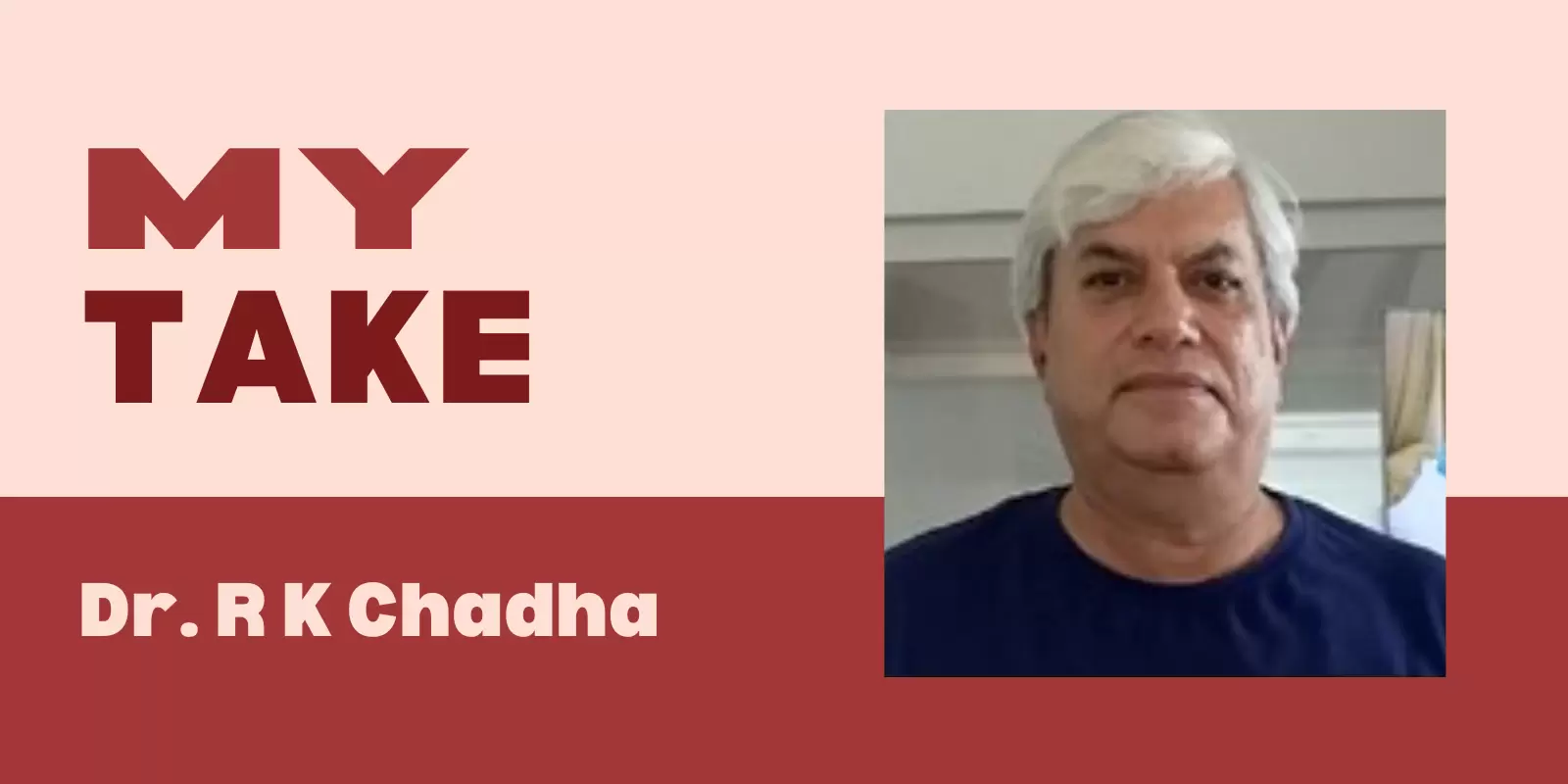(Dr RK Chadha)
The Women’s Reservation Bill, which is called Nari Shakti Vandan Adhiniyam was passed in the Indian Parliament on 21 September 2023 providing 33 percent reservation for women in Lok Sabha and State Assemblies. The bill is being hailed as historic and may likely empower women by giving them a voice in the male-dominated world.
Women by nature are more sympathetic, caring, organized, and responsible which makes them a formidable force in a country’s armor that is essential for its growth and development. Since they are awesome homemakers they would be brilliant as nation-makers, too. Historically, women have been subjugated in a patriarchal society irrespective of caste, creed, or religion and were deprived of a level playing field due to gender bias. This is changing fast as the women in India have shown remarkable achievements in every walk of life, given an opportunity. However, poverty and social inequalities still prevent many of them from fulfilling their potential. A wide gap exists between the principle of gender equality enshrined in our Constitution and the status of women in many communities across India. This is exhibited in low female literacy and high maternal mortality rates, particularly in rural areas.
With such a background, the moot question is, will this bill make any difference or remain a mere illusion of women’s empowerment? Prima facie, the heated debate in the Parliament between the ruling and opposition parties about the ownership of the bill indicates overtures of vote bank politics as both sides voted with remarkable urgency to pass the bill, a rare sight these days.
Reservation, per se, is a well-intentioned system brought into the country, post-independence to bridge the gap between the disparate social classes suppressed over the years. It was a time-bound policy that outlived its purpose and became the most potent electoral weapon in today’s politics. If women need to be empowered, we must give them power at grass root level that is power to be born, the power to get an education, the power to make their own decisions, the power to roam fearlessly through darkened streets, the power to campaign through night and day and power to travel over the whole country.
Prime Minister Narendra Modi understood the plight of Indian women very early and started a scheme of BetiBachaoBetiPadhao in 2015. The scheme aims to address the declining sex ratio, create social awareness, and enhance the efficiency of welfare services for girls. He followed it up with other schemes to provide social dignity and earning avenues like, 1) Working Women Hostel Scheme for single, widowed, married, divorced, and separated women, 2) One Stop Centre Scheme to protect women affected by acid attacks, rape, and sexual harassment, 3) Women Helpline Scheme that provides 24×7 emergency responses to women affected by violence in private or public spaces, 4) Mahila E-Haat for women entrepreneurs, 5) Mahila Police Volunteers that encourages women to join the police force, 6) STEP to provide training in skill development to assure employment, 7) SwadharGrehto provide shelter, food, clothing, social, economic and health security and 8) Mahila Shakti Kendrasas one-stop convergent support services to women to develop skills, generate employment opportunities, and increase digital literacy.

With such an impressive record of women’s schemes in the last nine years Narendra Modi’s government brought this bill to fulfill one of the promises made in its election manifesto.
It is to tick one more column on its agenda, as finished. I am not sure how many people in the country believe that only a woman sitting in the parliament will be more sensitive to the problems of women and is better at solving them. Sensitivity to issues and the capability of solving them does not depend on a person’s gender. Prime Minister Modi has proved this amply by his actions, so far.
Hence, the idea that only a woman in the Parliament can supposedly represent women better is inherently flawed.
Despite women forming an impressive 48 percent of the Indian population they are under-represented in the Parliament; but reservation is not the only option to correct this anomaly. Reservation can only treat symptoms and not the cause of a problem. Look at the women who are active in politics today; they are either the daughters, daughters-in-law, kith and kin of politicians or film actresses belonging to economically upper strata of society with no idea about the plight of women in the middle and lower classes. I leave it to the judgment of people to hazard a guess about their contributions. This bill is supported gleefully by one and all because it will open up opportunities to field their wives, even as Chief Minister where a precedent exists, or daughters as dummy woman candidates while doing their jobs without any responsibility. A win-win situation.
Women’s Reservation Bill is a fait accompli. However, it is thoughtful of the government that it is for a fixed term of 15 years. Prime Minister Narendra Modi should set an example by adopting a selection criterion for a woman MP, MLA, or Minister in either his party or the government that is based on merit and their career prospect is decided purely based on performance in service to the people and country. Watching the present star performers in his cabinet, people have high hopes on him. It is time that we start working towards a more egalitarian society where an average woman has equal opportunities as that of an average man so that misogyny in our society is eradicated. Only time will tell, whether the women reservation bill will empower women in India or it will remain an illusion. (The author is a former Chief Scientist at NGRI)






